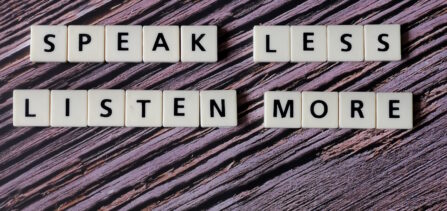
Easy Tips for Understanding Children's Misbehaviour
Improving or shaping children’s behaviour is easy if first, you can understand the purpose of their misbehaviour and then change your response.
Understanding Children’s Misbehaviour
Children misbehave around their mothers and fathers because parents are as predictable in their reactions as washing machine cycles.
Improving or shaping children’s behaviour is easy if first, you can understand the purpose of their misbehaviour and then change your response.
Four Types Of Misbehaviour
There are four types of misbehaviour that you need to know about.
“Is most misbehaviour attention-seeking?”
asked a father at a parenting seminar
Good question!
“Yes” I said. “But it is not that simple”
Attention Seeking
Understanding children’s misbehaviour starts by accepting that its very nature is attention-seeking. Their misbehaviour is hard to ignore and usually gains some measure of attention either from parents, siblings or adults.
These four common types of misbehaviour achieve one of three goals.
Your gut reaction is the best guide to understanding the goals of misbehaviour.
If you are unsure just respond as your feeling indicates and your child’s response is a sure indicator.
The Four Types Of Misbehaviour Are
1. Notice Me behaviours
These behaviours include clowning, cuteness, some eating problems, interruptions, shyness, showing off and whining.
They are very common in young children who think that the world revolves around them.
2. Help Me behaviours
These behaviours include incompetence, laziness, forgetfulness and untidiness which are all great ways to keep parents in children’s service.
When parents respond to help me behaviours by reminding, tidying and doing things for kids soon become helpless!
Both behaviour types achieve the goal of attention.
You know you have attention-seeking behaviours if you feel annoyed or frustrated.
And you tend to respond by scolding, correcting, reminding or doing tasks for kids, which is B-grade attention but good enough at any rate.
3. Make Me behaviours
Understanding children’s misbehaviour when it becomes violent is harder.
These behaviours include defiance, arguing, dawdling, temper tantrums and stubbornness.
These behaviours let parents know that they can’t make them do anything they don’t want to do.
The goal is power and control.
You know you have a power-seeker on your hands if you feel angry.
You actually want to make your child do something.
It’s not pretty!
If you respond by telling them what to do you often get an argument, more defiance or lack of cooperation.
These kids don’t mind a good scrap!
4. I’ll Hurt You Behaviours
These hurtful behaviours include hitting, stealing, refusing to cooperate and saying hurtful things.
The behaviours vary but the goal is the same to retaliate or hurt others around them.
When confronted with these retaliatory behaviours you feel hurt or even threatened.
How could she say such awful things to me?
is a typical reaction.
You also feel that you want to get even with your children for wanting to hurt you.
It can get nasty!!
Goal Related Behaviours
Goal-related behaviour works because parents tend to be as predictable as a washing machine cycle.
As difficult as it may seem you can change your children’s behaviours when you stop responding impulsively to children’s misbehaviours.
Ignore notice me behaviours (and place your attention elsewhere), stop being a mule to help me, kids, refuse to fight with power-seekers (and implement a consequence) and avoid overtly showing your hurt when confronted with retaliatory behaviours.
Parental Behaviour Change
Sounds easy, but often hard to do.
But discipline and behaviour change are primarily about parental behaviour change.
Start by avoiding your first instinctive impulse when kids are less than perfect and identify the goal of the behaviour.
Then change your usual reaction.
See what happens.
Experiment a little and expect children’s behaviour to get worse before it gets better.
Hang in there and you will see results in terms of improved behaviour.
This article was contributed by Michael Grose director of Parent Coaching Australia
Understanding Children’s Misbehaviour
Impact Factory runs
Tailored Change Management Training
and personalised One-to-One Skills Training
for anyone who is interested in
Behaviour Change Issues




